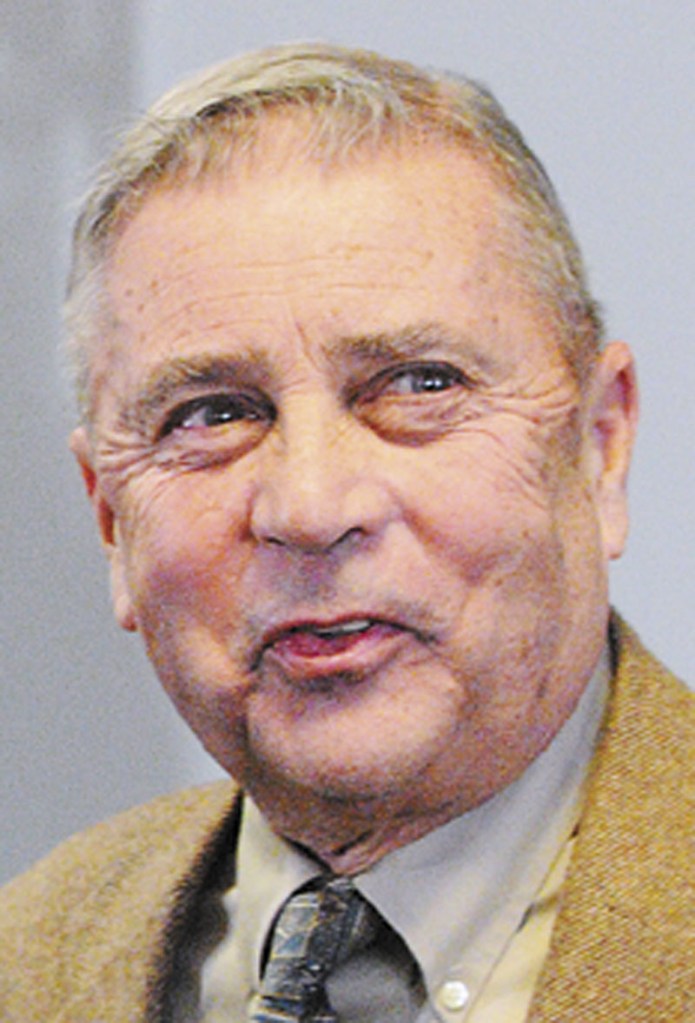AUGUSTA — Maine has 26 public safety answering points. Public Safety Commissioner John Morris believes they can be reduced to just two for the entire state.
He said the move will save money, but others are not convinced that will work.
“Let’s keep the PSAPs separate from the dispatch centers,” he said in an interview. “They are different and are too often confused. The PSAPs answer the calls; the dispatch centers send police, fire or other EMS (emergency medical services) to the emergency situation.”
Morris is suggesting fewer answering points will yield savings, possibly enough to fully fund the two call centers; but lawmakers who have worked on the issue and Chairman of the Public Utilities Commission Tom Welch are not as sure.
“We have a study that recommends we go to 17 PSAPs, and we are looking at implementing that recommendation,” he said. “I am not sure if there would be savings in that plan or in what Commissioner Morris is proposing.”
“We have a study that recommends we go to 17 PSAPs, and we are looking at implementing that recommendation,” he said. “I am not sure if there would be savings in that plan or in what Commissioner Morris is proposing.”
He said if the current PSAPs are all operating at maximum efficiency, he does not believe there will be savings from reducing the number. He said there will always have to be staff available to handle the call volume, and reducing the answering points will not reduce the volume of calls.
There were once 48 answering points in the state, but that was reduced to 26 by the PUC after considerable debate. There are 28 municipalities that have separate dispatching centers from the answering points. The answering points are paid for in part by a tax on phones, both land line and cell. In addition, the state regional call centers are partially paid for with state appropriations. Both call centers and dispatch centers are funded by assessments on local and county governments.
Rep. Stacey Fitts, R-Pittsfield, the co-chairman of the Legislature’s Energy, Utilities and Technology Committee, said the number of PSAPs has been a hard-fought battle for years and he expects Morris’ proposal to rekindle the debate in January.
“I don’t know if it has a lot of legs at this point, just based on the history of the issue and the outcry of opposition,” he said.
He expects there will be support in the second regular session of the Legislature to reduce the number of answering points to 17 as proposed by the PUC-commissioned study.
“Maybe after that is in place, we can look at what Commissioner Morris is proposing.” Fitts said.
Sen. Philip Bartlett, D-Gorham, said it will be difficult in a short session to deal with such a controversial issue.
“When you are looking at something as drastic as going down to two, I think there will be folks from all over the state that will be upset and pushing back against that, which will make it very, very difficult to get it resolved in such a short period of time,” he said.
Bartlett said in many states the 911 answering function and the dispatch of services are done at the same site. In Maine they are often separated.
Fitts said when Morris was police chief in Waterville, he was a strong opponent of reducing the number of PSAPs. Morris said his concern was not where or the number of answering points, but the location of the dispatch function.
“I agree that the dispatch should be done locally, where the dispatchers know the area and can respond quicker to calls,” Morris said.
Morris said local dispatchers can better handle the frantic phone call with few details. He said another major concern he has is with the number of cellphone calls coming to the regional call centers operated by his agency.
From March through the end of August, the four state regional call centers handled 154,879 calls, and 144,817 were from cell phones all over the state. About 42 percent of those calls were transferred to other dispatch centers. The state regional call centers act as both answering points and as dispatchers for state agencies such as the state police and the Maine Warden Service.
“We are handling all of those calls, and we don’t get paid for them. That is something I am going to pursue,” Morris said.
Welch said that concern is already being addressed. He said the commission has ordered the cellphone companies to install the proper equipment to make sure cell calls are routed to the correct answering point.
“That is already under way, and I expect it will be completed in about six months,” Welch said.
Morris said he is not sure what he finally will end up proposing to lawmakers, but he said it’s clear to him changes need to be made.
Send questions/comments to the editors.



Success. Please wait for the page to reload. If the page does not reload within 5 seconds, please refresh the page.
Enter your email and password to access comments.
Hi, to comment on stories you must . This profile is in addition to your subscription and website login.
Already have a commenting profile? .
Invalid username/password.
Please check your email to confirm and complete your registration.
Only subscribers are eligible to post comments. Please subscribe or login first for digital access. Here’s why.
Use the form below to reset your password. When you've submitted your account email, we will send an email with a reset code.